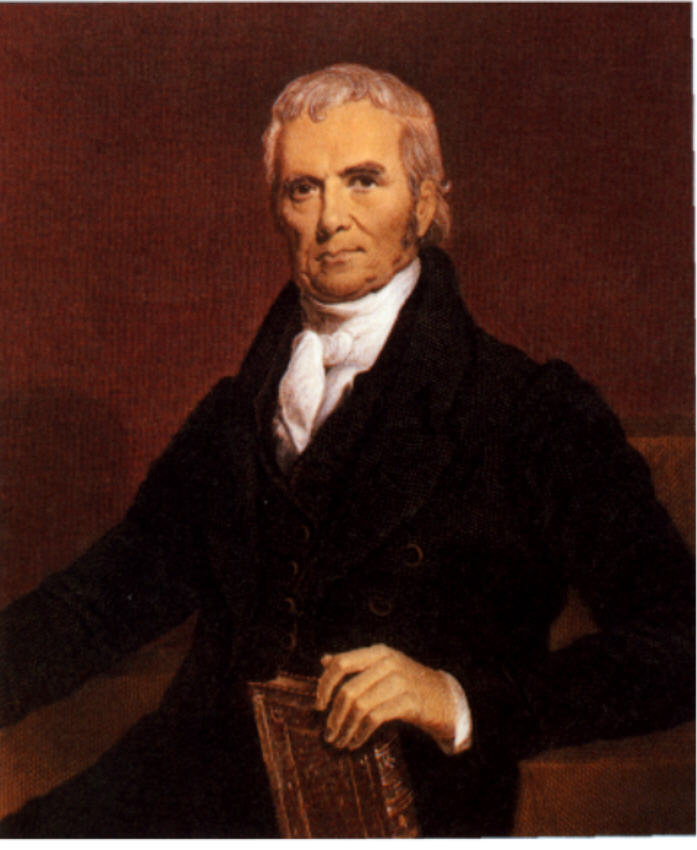
John Marshall
AN INCIDENT IN THE LIFE OF CHIEF JUSTICE
MARSHALL.
JOHN MARSHALL was one of the most noted men of our country. In 1801 he became chief-justice of the United States. "He was a man of acute and penetrating judicial intellect, and dispassionate in the hearing of causes." Says Judge Story, "His judgments, for power of thought, beauty of illustration, variety of learning, and elegant demonstration, are justly numbered among the highest reaches of the human mind."
Marshall was a very plain man. He looked more like a farmer than a judge. It is related of him that while chief-justice, he stopped one night at a public house in Virginia to get supper and lodging for the night. As the old man drove up, it was noticed that both shafts of his gig had been broken, and were bound up with withes, also that he was plainly dressed; and so they supposed him to be a farmer. At about the same time, three or four young lawyers also stopped for the night.
After they were seated for the evening, one made a remark about a very eloquent sermon he had heard that day, and another replied to him in a sarcastic manner. Then a warm debate took place upon the merits of the Christian religion.
From six till eleven o'clock the young men argued pro and con, bringing out with ingenuity and ability, all that could be said upon the subject. During this time the old man sat very quiet, listening with all the meekness and modesty of a child. Finally one of the young men remarked that it was no use to argue with long and established prejudices, and turning about, said, "Well my old man, what think you of these things?"
"If," said a man present, "a streak of vivid lightning had at that moment crossed the room, their amazement could not have been greater than it was with what followed." For nearly an hour the old gentleman made the most eloquent and unanswerable appeal that he had ever heard; so perfect was his recollection, that every argument urged against the Christian religion was met in the order in which it was advanced, and in the whole talk, there was so much simplicity and energy, pathos and sublimity, that not another word was uttered." An attempt to describe it," said our traveler, "would be an attempt to paint the sunbeams." The question immediately was asked, "Who is this? Who is this?" They were answered, "He is the chief-justice of the United States."
JOHN R. CALKINS.